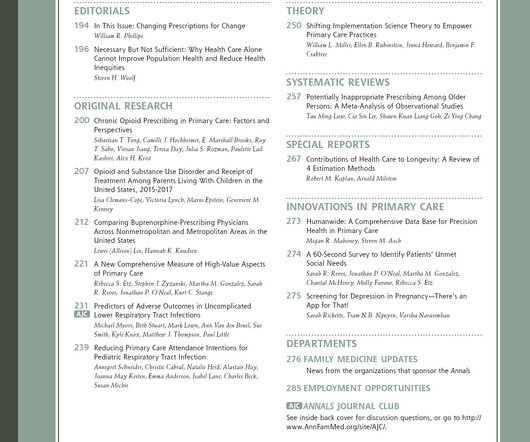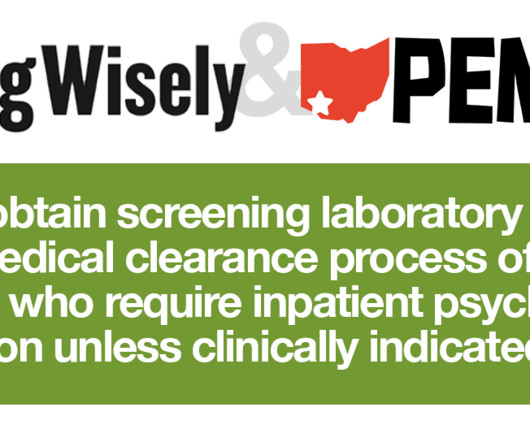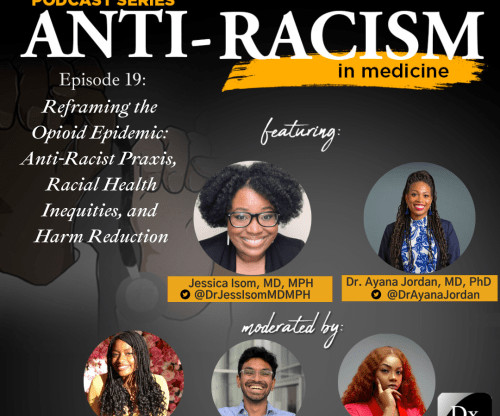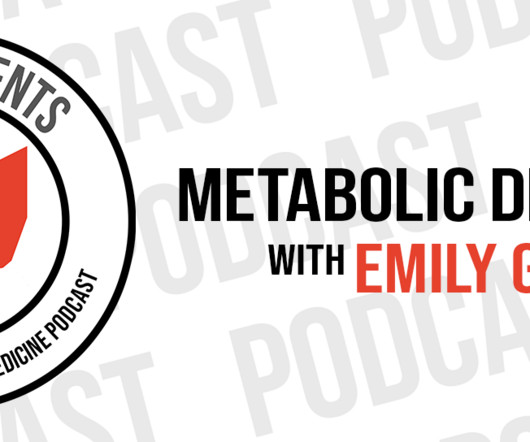What Does Behavioral Health Provider Practice in Primary Care Look Like? [Behavioral, psychosocial, and mental illness]
Annals of Family Medicine
NOVEMBER 20, 2024
Visits were largely scheduled individual visits (85%), provided in person (70%), and involving psychotherapy (90%). Patients were seen by the BHPs for a wide variety of presenting concerns. BHPs’ clinical time was divided among direct patient care (56%), administrative tasks (29%) and consultation with other team members (15%).



















Let's personalize your content